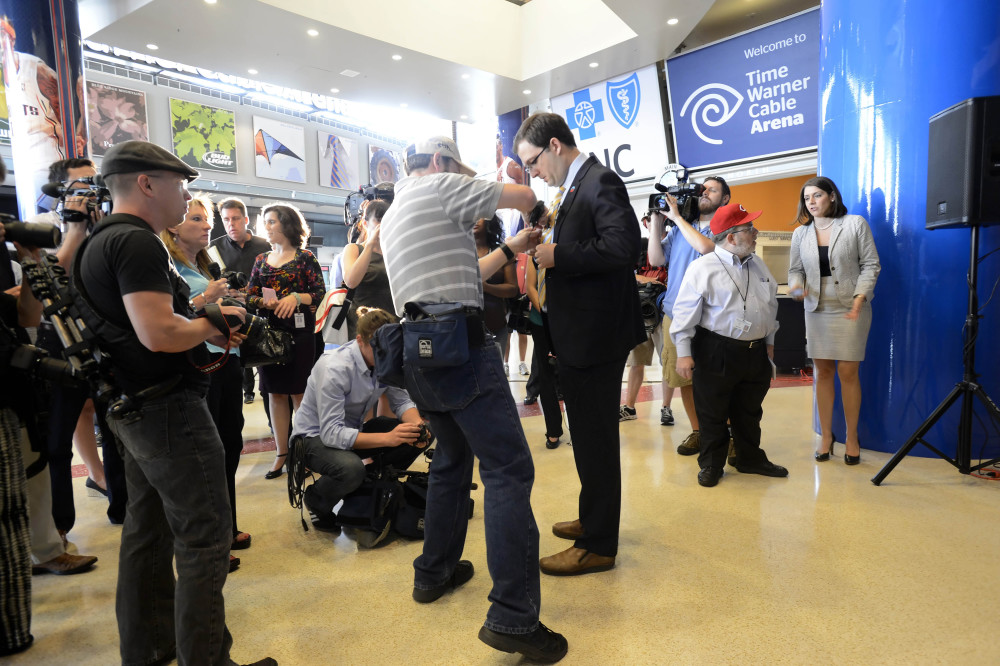By Gordon Oliver
The Columbian, Vancouver, Wash.
I was the only man in the room last Wednesday at the monthly meeting of the Women Entrepreneurs Organization of Clark County.
I had no complaints, but I had to wonder what advice about the news business I could offer these hardworking women whose business ventures ranged from tatoo artist to real estate broker.
I was part of a media panel with Cindy Johnson of the Vancouver Business Journal and Dawn Feldhaus of the Camas-Washougal Post-Record.
Moderator Chandra Chase of the Greater Vancouver Chamber of Commerce posed three questions, which I paraphrase: What are tips for getting what she called “earned media” — an article in the newspaper? What mistakes do women entrepreneurs make in trying to get coverage about their businesses? And how has the Internet changed what stories get covered?
Straightforward questions, with not-so-simple answers.
The news business is hot and cold — some days are stuffed with news, while on others we worry about how to fill all the white space on a page.
So the threshhold for breaking into print (and columbian.com) varies from one day to the next. No surprise. It’s not that we don’t have standards — plenty of suggested stories are too small, too insignificant, or too irrelevant to make the cut even on the slowest of days. But between that low place and the obvious news stories lie plenty of gray areas requiring day-to-day decisions.
Before discussing mistakes in pitching stories, I offer my thanks to the entrepreneurs, both men and women, who reach out with story ideas. We love to hear them. We can’t be everywhere, and our readers and small businesses are our eyes and ears.
The mistakes come from not understanding The Columbian’s frame of reference. Our franchise is local — in most cases, that means Clark County, not Portland.
Information about employee promotions and recognition is likely to land in our Sunday paper and online.
We’re always looking for profile subjects for our Monday “Working in Clark County” feature. Stories about significant changes or growth of a small business often become a news brief. For larger stories, we’re on the lookout for stories that reveal larger trends in our economy and communities.
The technology represented by the word “Internet” allows us to know what our online readers care about.
On the business side, lots of people read about shopping, restaurants, housing developments, and even the long-running oil terminal debate.
buy kamagra effervescent generic buy kamagra effervescent online no prescription
Of course, the Internet and social media have put an end to the days when newspapers and other major media were gatekeepers of getting the word out.
Some of the women entrepreneurs at last week’s function said social media is their main marketing tool. But among this crowd, most relied on word-of-mouth marketing and positive referrals. “Treat customers with respect and gratitude,” one woman said. “Be indispensable,” said another.
Those techniques predate technology and even newspapers.
They are tools that women, more than men, excel at. And they’re likely to bring success that will lead to “earned media” that’s still a valuable commodity in the business world.














































































































































































































































































































































































